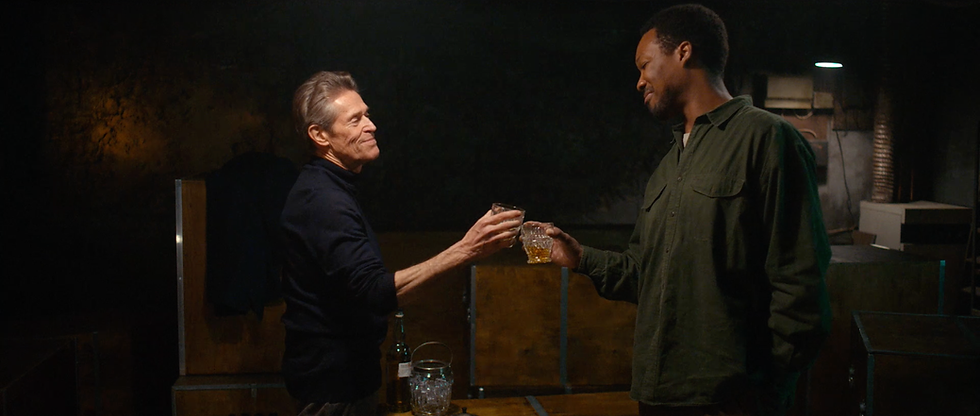Facing the Monsters Within: The Man in My Basement Review
- Travis Brown

- Sep 5, 2025
- 2 min read

Review: The Man in My Basement
Walter Mosley’s name has long been synonymous with bold, thought-provoking storytelling, whether in crime, drama, or surreal explorations of identity. With The Man in My Basement, adapted from his own novel, Mosley pairs his distinct fever-dream style with filmmaker Nadia Latif’s sharp directorial eye. What results is a haunting psychological thriller that blends grief, mysticism, and moral reckoning in ways that feel both intimate and unsettling.
A Story Rooted in History and Vulnerability
Corey Hawkins delivers a compelling turn as Charles Blakely, a Black man drowning in depression and inherited grief. When Willem Dafoe’s mysterious Mr. Bennett offers him an absurd proposition—renting Blakely’s basement for $1,000 a day across 65 days—the film spirals into a surreal chamber piece. At its core, this is a story about tradition, history, and the vulnerabilities of Black men—rarely portrayed with such nuance on screen. Mosley reminds us that true horror often lies not in the monsters outside, but in confronting our own fractured identities.
Performances That Carry the Film
Hawkins and Dafoe make for a striking duo, their chemistry powering the film’s claustrophobic tension. Hawkins grounds Blakely’s pain and confusion in quiet vulnerability, while Dafoe embodies menace with his usual uncanny ease. Together, they elevate Mosley’s layered narrative into something that feels timeless yet rooted in urgent cultural realities.
A Fever Dream With Loose Ends
Latif steers the adaptation with confidence, leaning into mysticism and dreamlike imagery. While the story’s refusal to provide clean answers adds to its eerie atmosphere, it also risks leaving some viewers unsatisfied. The ending, speculative and unresolved, feels in step with Mosley’s traditions but may frustrate those searching for concrete resolution.
Final Thoughts
The Man in My Basement is a powerful entry in the growing canon of films confronting the vulnerabilities of Black masculinity through genre storytelling. It may not land every punch, but its atmosphere, themes, and performances linger long after the credits.
Rating: 3 out of 5









Comments